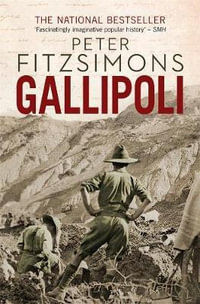An all-encompassing look at the history and enduring impact of the Apollo space program
In Apollo's Legacy, space historian Roger D. Launius explores the many different stories told about the Apollo program's meaning. In 1961, President John F. Kennedy challenged the United States to land astronauts on the Moon by the end of the decade; NASA met that challenge with the Apollo program. Apollo astronauts managed to both make a total of 11 spaceflights and walk on the Moon. The program was the first time human beings had left Earth's orbit and visited another world.
Launius examines whether the dominant story of the missions--one of American triumph, exceptionality, and success--is an accurate portrayal. He explores many beliefs stemming from this American "exceptionalist" narrative, including the idea that it yielded extensive space technology advances; that the astronauts were heroes, celebrities, and even embodiments of American virtues; and that we gained an extensive knowledge of the Moon through the Apollo program. Taking into account other, more critical perspectives and situating the program in its cultural context, Launius offers a nuanced take on Apollo. Throughout the book, Launius weaves in stories from important moments in Apollo's history to draw readers into his analysis. Apollo's Legacy is a must-read for space buffs looking to get a new angle on a beloved cultural moment.
Industry Reviews
"As Launius analyzes critiques of the Moon landings and discusses Moon-landing denialism, he uses key moments in the space race to illustrate his analysis."
--American Scientist "Space Age aficionados, political junkies, and general readers will find both the unexpected and the fascinating in Launius's scrupulously researched account."
--Publishers Weekly, starred review
"The book also provides extensive background material on the space program, both from within NASA and from outside observers, as well as a useful annotated bibliography for those who want to do their own research. A valuable summary of an important piece of modern history and its effects and a must-read for space enthusiasts."
--Kirkus Reviews
"Launius' insightful cultural analysis of all that Apollo has signified helps celebrate the first lunar landing's 50th anniversary."
--Booklist
"Roger D. Launius's Apollo's Legacy is a masterly written and impeccably researched overview of the Cold War space race between the United States and the Soviet Union. Nobody knows NASA history with the insight and exactitude of Launius. Every page brims with fresh insights. Highly recommended!"
--Douglas Brinkley, Katherine Tsanoff Brown Chair in Humanities and Professor of History, Rice University and author of American Moonshot: John F. Kennedy and the Great Space Race
"An incredibly inspiring and well-researched story of the origins and accomplishments of the Apollo program, Launius's Apollo's Legacy is a superb tutorial for all of us who consider ourselves to be strong proponents of human exploration of the Moon and Mars. Replete with previously untold background stories of the battles to gain approval for Apollo and to manage its execution, this book is instructive on the contemporary challenges--political and societal--that we face in trying to maintain momentum for the continued pursuit of human journeys and settlement beyond low Earth orbit."
--Maj. Gen. Charles F. Bolden Jr. (US Marine Corps-Ret.), 12th NASA Administrator
"With the perspective of half a century lived in the afterglow of the Apollo project, historian Launius provides a trenchant three-dimensional analysis, plotting Apollo's legacy over time against the axes of political left and right, and of legitimate triumph versus hoax-mongering. He brings to life the idealism that in unusual coalition joined innovation and geopolitics, as 'all the cosmic tumblers clicked into place to make possible successful Moon landings.'"
--Don Eyles, Apollo engineer and author of Sunburst and Luminary: An Apollo Memoir
"That complex, critical perspective makes Apollo's Legacy stand out amid all the books that simply celebrate that glorious and revered event."
--The Space Review
























